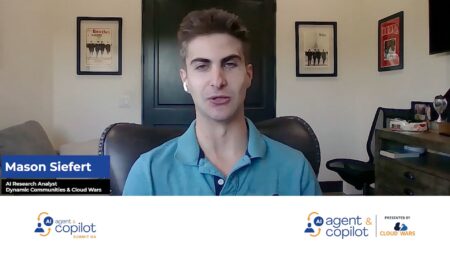Customer Successes are Accelerating Microsoft’s Growth
Think about this number: $3 trillion. For many, that number is mind-boggling, but for Microsoft, this represents the market cap it will soon hit. But how is Microsoft looking to achieve this goal?
Well, let’s take a step back. A few years ago, big tech firms, such as Microsoft, started heavily focusing on industry-specific needs. The early focus turned into lightweight “accelerators” which seemed to be a way to “test the waters” and gather telemetric data. This then gave birth to Microsoft’s Industry Cloud solutions.
The success of the industry-first solutions was quickly realized. Businesses were able to see a faster time to value as the applications were now equipped with the core fundamental capabilities specific to their industry. Further, this freed organizations to explore new business models and launch new lines of business which fed back into the need for more business applications.
During Acceleration Economy’s Industry Cloud Battleground in November 2021, Bob Evans, the Founder of Cloud Wars and Co-Founder of Acceleration Economy, spoke with Kees Hertogh, GM for Global Industry Product Marketing at Microsoft.
The conversation focused on:
- How the pandemic reshaped the world which forced companies to turn challenges into opportunities.
- The role of artificial intelligence in galvanizing multiple data sources to break down data silos.
- Co-innovation with customers has led to a common understanding of data and the creation of unique solutions.
Seizing the Opportunities During a Global Crisis
There is no doubt that the pandemic will go down in the annals of history for many reasons. People and organizations around the world were impacted in some way, but resiliency and determination were brightly illuminated.
One area hit hard by the pandemic is the healthcare industry. Amid this crisis, this industry is, according to Kees, “increasingly looking at a strong digital foundation” to “turn these challenges into opportunities”.
Kees detailed a few strong examples:
- Northwell Health is improving patient experiences through its NORA app.
- Chipotle leveraging customer data to educate and inform its customers more effectively.
- Not-for-profit, Right To Play, scaled from hundreds to thousands of monthly donors to continue serving more than 2 million children around the world each week
Breaking Down Data Silos with AI
Data is the lifeblood of any company that wants to stay competitive. However, many fail in harnessing the data across disparate systems. This presented a huge challenge for Microsoft’s customers, but out of this, as Kees noted, they recognized that “for each industry, there is a unique set of patterns”.
What was the result? Kees further explained that out of these patterns emerged priority scenarios which allowed them to create a set of common requirements around data schemas. This was important as it led to bridging data silos, making AI more powerful, and driving down interoperability costs.
But there is more at play here with artificial intelligence:
- With data access unlocked, AI can really be honed to focus on what it does best.
- AI becomes more powerful, and more data insights are surfaced.
- According to Kees, Chipotle was able to “get galvanized on all different data sources, from web clicks to a deep understanding of their on-premises billing systems”.
Co-Creation Led to Dual Outcomes
Bob Evans hit on “Satya [Nadella’s] theme about tech intensity” during the conversation with Kees. At the root of this theme is the co-creation with customers and partners that, as Kees put it, is “a vital component of Microsoft’s success”.
As an example, Microsoft partnered with Truveta, an organization whose mission is to save lives with data in healthcare. Further, this data is shared with other organizations in a “data for the greater good” effort. The effort to accomplish this was extraordinary as the data was scattered across
70 health patient-provider-member systems, which contained tens of millions of people data spread through thousands of care facilities in 40 US states.
The result of the co-creation process has led to a couple of outcomes:
- It’s provided a common understanding of data unique to the industry and organization.
- By empowering companies with citizen platform technologies, such as the Power Platform, they are realizing a faster time to value.
No Company Can Survive on an Island
A company achieving a $3 trillion market cap is not a freak of nature. It’s a strategic effort that requires energizing employees, customers, partners, and a passionate community. Further, the visionary leadership of CEO Satya Nadella is a testament to Microsoft’s success.
However, it’s incumbent on every company to recognize the power of collaboration not only internally, but externally as well. Co-innovation and co-opetition require a concerted effort to listen to customers and realize you don’t have all the answers.
Kees Hurtogh capped off the conversation in this way, “this is all about kind of improving time to value, lower cost, and increased agility for our customers.”
Read the Full Interview Transcript Here







